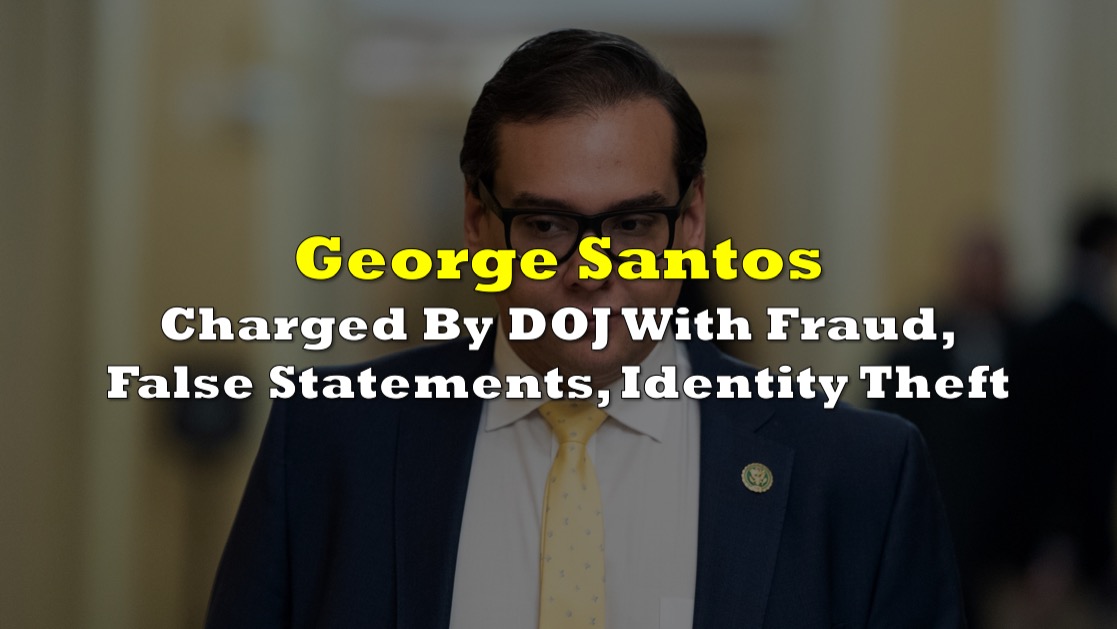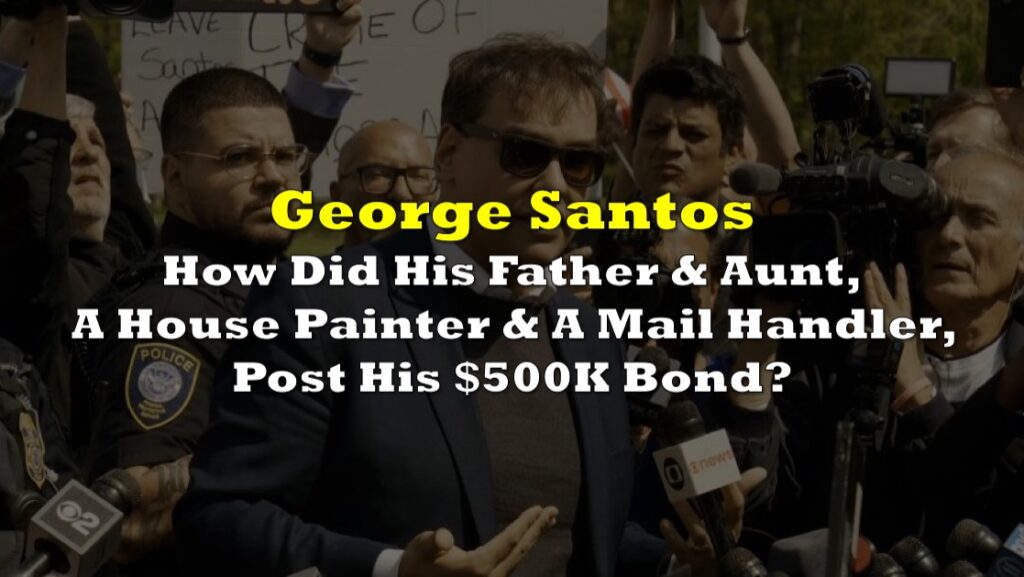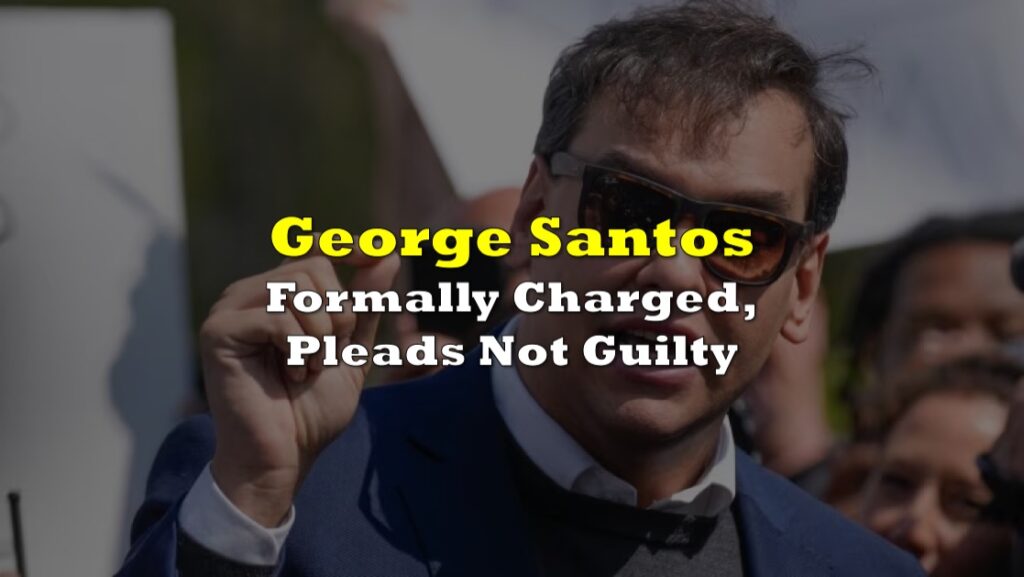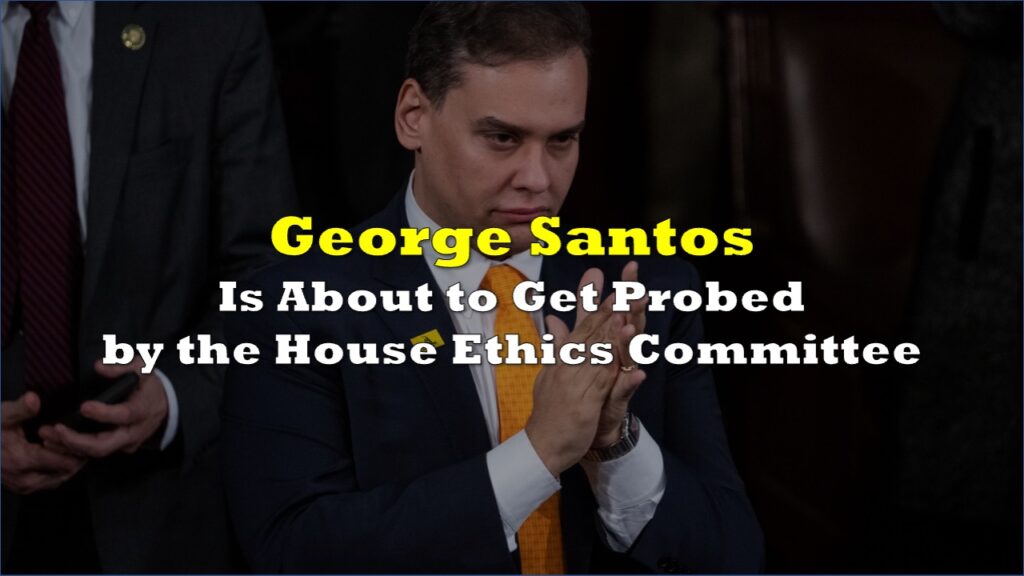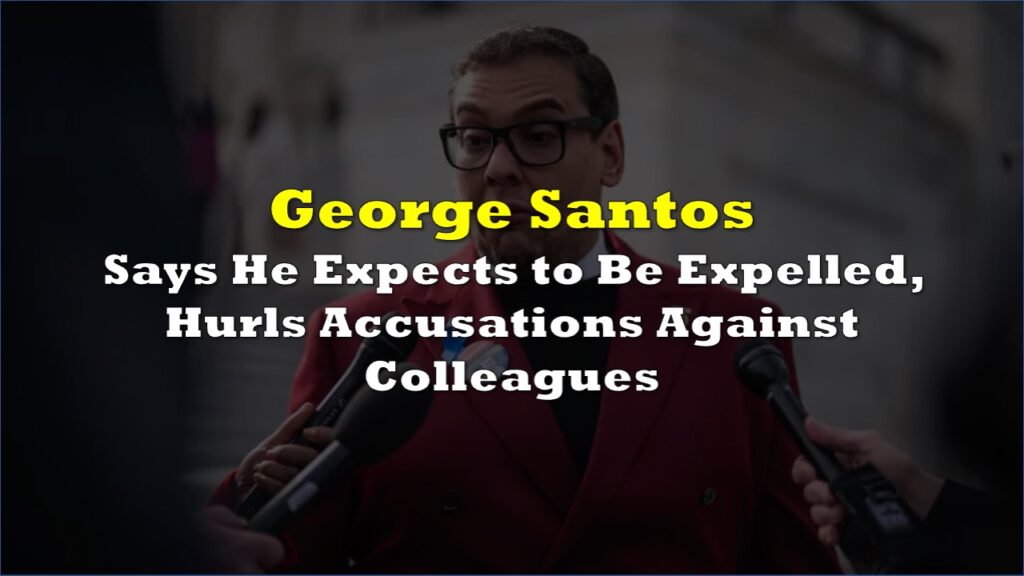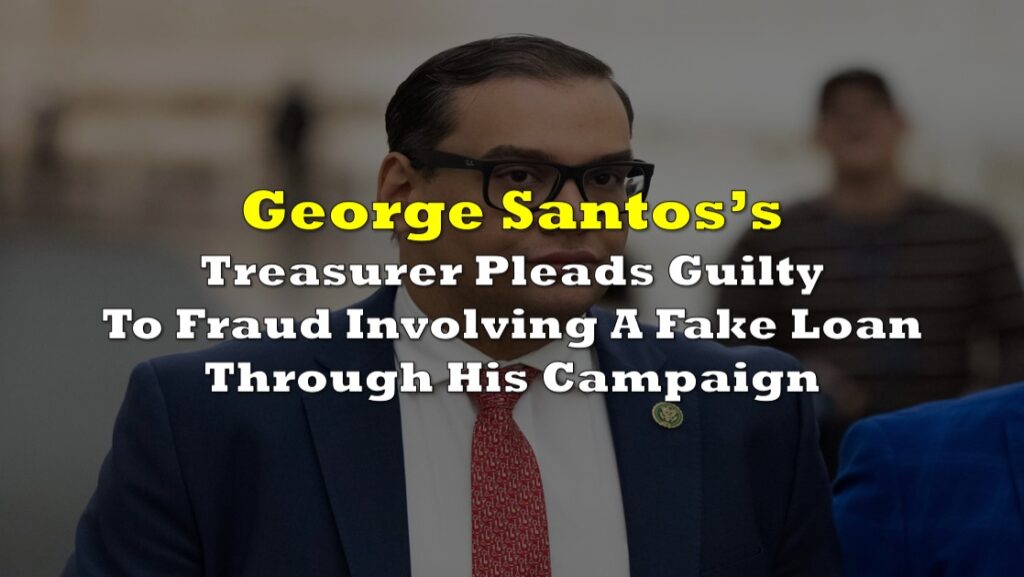Federal prosecutors leveled a barrage of new charges against Representative George Santos of New York on Tuesday. These charges allege a fresh set of criminal activities, including the unauthorized use of donors’ identities and credit card details for his campaign.
The comprehensive 23-count superseding indictment outlines how Santos repeatedly charged his donors’ credit cards without their consent, channeling the funds towards his own bank account and other candidates’ campaigns. This updated indictment, filed in the Eastern District of New York, incorporates ten additional charges against Santos. These include conspiracy to commit offenses against the United States, wire fraud, aggravated identity theft, access device fraud, false statements to the Federal Election Commission, and falsifying records to obstruct the commission.
ALERT: Superseding indictment against Rep George Santos (R-NY). He now faces *23* charges, including conspiracy & fraud. Feds: “Santos allegedly led multiple additional fraudulent criminal schemes, lying to the American public in the process.” pic.twitter.com/oGK4O84jo0
— Scott MacFarlane (@MacFarlaneNews) October 10, 2023
The allegations against Santos, a first-term Republican from New York, differ significantly from the typical corruption cases involving politicians. While most such cases involve complex quid pro quos and legal intricacies surrounding political bribes, Santos’s alleged misconduct resembles that of an everyday con artist.
Prosecutors contend that Santos pilfered a donor’s credit card information to transfer over $11,000 into his own bank account, and hoodwinked $50,000 from two other donors using a bogus nonprofit. These ill-gotten funds were spent on designer goods and personal debts. He also purported to be affluent to impress Republican leaders, falsely reported a $500,000 campaign loan to secure their financial support, and fabricated tens of thousands in donations to create the illusion of overwhelming political success.
This updated indictment emerged shortly after Santos’s campaign treasurer, Nancy Marks, pleaded guilty to conspiracy to defraud the United States. Marks acknowledged her involvement in falsely reporting the fictional $500,000 loan. The superseding indictment confirms what was already widely suspected: Santos was the undisclosed co-conspirator.
“Santos falsely inflated the campaign’s reported receipts with nonexistent loans and contributions that were either fabricated or stolen,” stated Breon Peace, the U.S. attorney for the Eastern District.
Santos declined to comment on the new charges, stating he had not checked his phone recently and had no intentions of resigning. His lawyer, Joseph Murray, declined to provide a statement.
In May, the original indictment against Santos outlined his involvement in three separate financial schemes, including wire fraud, money laundering, embezzlement of public funds, and falsifying federal disclosure forms. He has consistently denied any role in his campaign’s finances, shifting responsibility for discrepancies onto Marks.
These new charges may intensify the pressure on Santos to reach a plea agreement. In September, prosecutors revealed that they had initiated discussions about potential resolutions to his fraud case. Santos continues to deny such negotiations.
If Santos were to resign, a special election would be conducted to fill his seat. Thomas R. Suozzi, the Long Island Democrat who previously held the position for six years, has announced his intention to run for the vacant seat.
The new indictment delves into several fresh schemes employed by Santos to generate funds for both his campaign and himself. Prosecutors allege that Santos, eager to meet campaign benchmarks set by a national Republican Party campaign committee, defrauded donors to inflate his campaign coffers.
The indictment details how he repeatedly charged a donor’s credit card, known as “Contributor No. 12,” without their awareness or consent, funneling $15,800 into Santos’s campaign and related committees. In the ensuing months, prosecutors assert that Santos charged this same donor an additional $44,800, with some funds passing through a Florida company linked to the Devolder Organization. A portion of this money, approximately $11,000, was directly transferred into Santos’s bank account.
Much of the updated indictment mirrors the accusations directed at Marks. Prosecutors claim that both Santos and Marks collaborated to inflate fundraising figures, ensuring they reached a $250,000 threshold that would make the campaign eligible for support from a Republican Party committee.
The indictment cites text messages and emails in which the two conspired to report that the campaign had met its fundraising goals by including $53,200 in fake contributions from relatives who had never actually contributed. Santos furnished a list of family members’ addresses and occupations associated with these fictitious donations, ultimately securing his inclusion in the program.
Subsequently, Santos asserted to the Republican committee that he had made a $500,000 loan to his campaign, which Marks later admitted was fraudulent. He assured the committee that he possessed the “personal and political capital” to finance his campaign, despite having less than $8,000 in his personal and business bank accounts at the time. Prosecutors maintain that his misleading statements allowed him to receive financial and logistical support.
The original indictment, filed earlier, accused Santos of collaborating with an unnamed associate in 2022 to solicit a minimum of $50,000 in donations for a super PAC nonprofit. The funds, prosecutors argued, were pocketed by Santos for personal expenses, such as luxury designer clothing and credit card payments. It also charged him with fraudulently receiving over $24,000 in pandemic unemployment benefits while being employed and knowingly making false statements on financial disclosure forms.
Santos is scheduled to appear in court on the original indictment on October 27.
Information for this briefing was found via the The New York Times and the sources mentioned. The author has no securities or affiliations related to the organizations discussed. Not a recommendation to buy or sell. Always do additional research and consult a professional before purchasing a security. The author holds no licenses.

